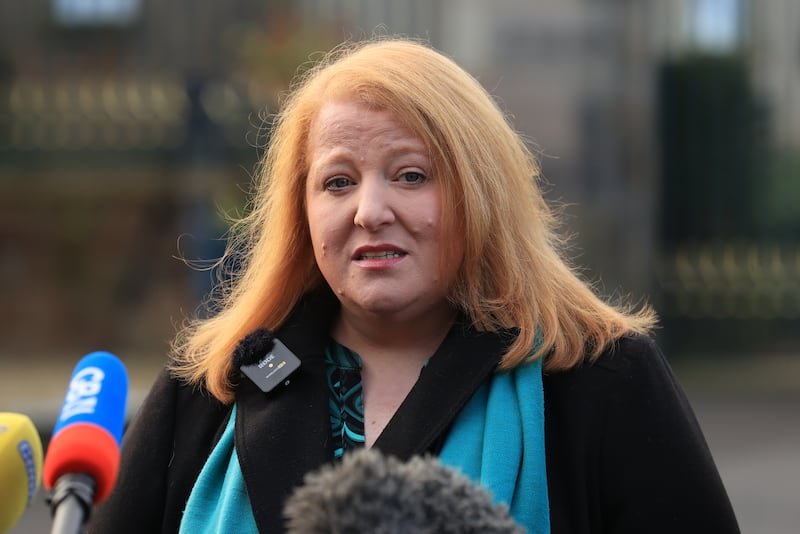IT’S often said political parties in Northern Ireland do not agree on much.
The failure of Wednesday’s recall of the Assembly, even in the face of the most significant strike action by public sector unions in a generation and unprecedented pressure on public services and finances, serves as a painful reminder of that.
However, in the Assembly and Executive Review Committee (AERC), all parties did agree on one thing – the need to reform the institutions of the Good Friday Agreement to ensure they are stable and functional. Sadly, that’s where agreement ended, as they failed to agree what that reform might involve.
Despite that lack of political consensus, it is significant all parties accepted repeated cycles of stop-go, ransom politics are unsustainable.
That instability is not, as Brian Feeney suggested recently in this newspaper, due simply to Northern Ireland being inherently unable to sustain normal politics.
Rather, the vetoes hardwired into the Good Friday Agreement and the absence of any protections against their abuse - which can be resolved via reform - are the fundamental issues.

Even those parties with the ability to exercise vetoes – currently the DUP and Sinn Féin – have agreed there is a problem in that AERC report. Indeed, as recently as 2022, the DUP supported a move to a voluntary coalition. Both Sir Jeffrey Donaldson and his predecessor Baroness Foster are also on record as saying no single party should be able to collapse the Executive.
Whilst Sinn Féin have been more reticent in setting out their views on reform, they have been clear the denial of their electoral mandate and right to take up the post of First Minister is anti-democratic and unacceptable. They have also indicated they are open to an independent review of the institutions, albeit remaining non-committal on the specific nature of any potential change.
The smaller parties too have acknowledged reform is necessary. Not only did the UUP fundamentally change the GFA by bringing forward legislation to create an official Opposition, but Doug Beattie has said he would support an independent review of the institutions with a view to further reform.
Meanwhile, the SDLP has also acknowledged the necessity of reform, in calling for a move to weighted majority voting to elect a Speaker. If suitable for that, it begs the question why not also for other similarly contentious Assembly votes?
Both parties also previously exercised their right to go into Opposition, though they qualified for ministries in the Executive and may, along with Alliance, opt to do so again in future. It seems unfair to deny that same right to the DUP and Sinn Féin, should they wish to exercise it.
Importantly, the call for institutional reform is much wider than from within local political circles. The business community has repeatedly expressed frustration with political instability and spoken of the need for it to be addressed through reform. Former Secretary of State Brandon Lewis has also stated there is a need for the institutions to evolve into a more stable and functional arrangement. And in the wake of Wednesday’s failed attempt to restore devolution, the influential US Ad-Hoc Committee to Protect the Good Friday Agreement stated if the DUP do not return to Stormont, they must step aside and let others take their place.
Most compellingly and most importantly, the people of Northern Ireland themselves support reform to ensure no single party can ever again subvert democracy either by holding the institutions to ransom or threatening to do so. Recent polling by the University of Liverpool shows majority support for such reform stretches across our community, no matter your constitutional view.
Whilst it may suit some political parties to maintain control over the existence of our political institutions and perhaps be comfortable for some commentators to merely dismiss reform as ‘daftness’ or ‘naiveté’, it is they and not Alliance who are out of step with the majority of people here.
There has recently been much focus on the £3.3 billion package on offer from the UK Government if restoration can be delivered. While far from the framework for financial stability that we need, it could put us on the path towards that, acknowledging as it does that NI is currently underfunded with respect to need and opening the door for further negotiation with Treasury. However, that financial stability will not be possible unless there’s also political stability and an Executive to do that negotiation.
Alliance has been supportive of progressive reform of the institutions since their Inception in 1998. With each collapse the case for reform gets stronger. Others want to depart entirely from the GFA, whether by implementing direct rule from Westminster or direct rule with an enhanced role for the Irish Government.
Alliance, however, wants first to focus on removing what Mark Durkan once called the “ugly scaffolding” of the GFA, refining the minority protections for a new generation and making the structures not just fit for purpose but fit for delivering a more stable, shared and prosperous future for everyone.

